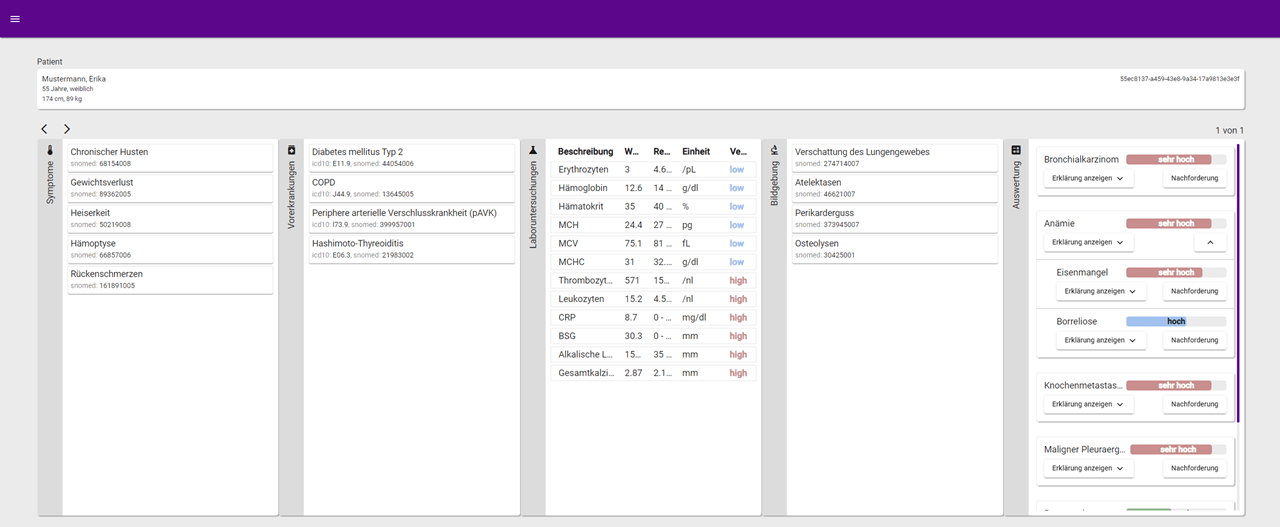Laboratory Diagnostic Intelligence
Leveraging industry standards and lab-specific diagnostic pathways, medicalvalues empowers laboratories to utilize artificial intelligence
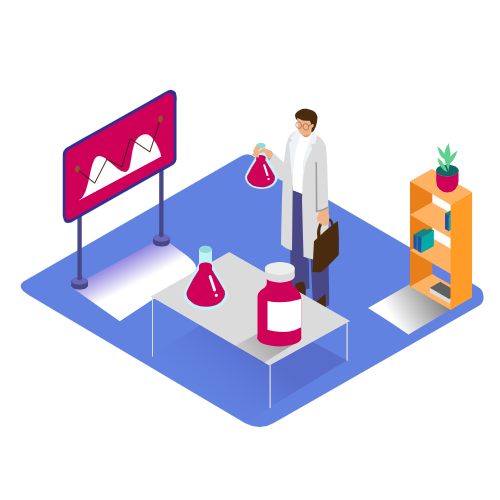
Competitive
Differentiation
By employing the medicalvalues platform, laboratories can differentiate themselves on the market and appeal to residential physicians and hospitals alike due to ease of use for clinicians. medicalvalues improves the diagnostic experience for physicians at the bedside or in outpatient clinics.
Laboratory Physician Empowerment
There is a growing demand for skilled laboratory experts. By providing intelligent recommendations medicalvalues supports physicians achieve more, in less time. In addition, the system provides interactive help to consult customers based on integrative pathways across clinical chemistry, hematology, or coagulation. Moreover, integrated diagnostics with clinical and radiology findings is made easy by medicalvalues.
Digitalization and Harmonization
With the help of the medicalvalues platform you can establish standardized, intelligent diagnostic pathways across laboratories. Tools like the semi-automatic LOINC mapping and our pre-built medical content help you to quickly harmonize and centralize medical knowledge and procedures – within one lab, but also across large laboratory chains.
Initial Lab Order
Evaluation of findings
Integrated Follow-up
Recommendations on follow-up testing based on laboratory results – but also under consideration of clinical findings or additional imaging results.
Support within the laboratory
Support your physicians during their daily work to create even better outputs. What matters most is the quality of your product: your laboratory data. Enable your team to achieve this with manual, semi-automated or fully automated processes.
Creation of findings
Simplified documentation and reporting through predefined texts recommended by the software. Efficiently create high-quality reports providing added value for your customers.
Support for interaction with the customer
Expert algorithms (e.g. for Endocrinology, coagulation, genetics, inflammation/infection, auto-immunology) are available, continuously updated and can also be adapted to the individual needs.
Knowledge
Digitization and Knowledge Management
Central knowledge management
Harmonization of step-by-step diagnostics across laboratories and establishment of a laboratory-specific knowledge repository based on pre-built and continuously updated diagnostic pathways.
Data intelligence
Semi-automatic LOINC mapping and support in reference value determination and harmonization. Identify diagnostic clusters and gain insights on risk factors.
Insights through analysis of test profiles and request behavior
Offer advice to clinics and physicians in optimizing diagnostics profiles for achieving improved patient outcomes.
Our Offer
How we can support you
Secure IT Operation
IT Operation in the cloud or on-premise possible. We offer extensive monitoring, security and data protection measures according to current standards.
Extensive Knowledge Base
Creation of diagnostic pathways with subject matter experts – data-driven and combined with expert content validation. Possibility of individualization: adaptation to your reference values and individual diagnostic procedures.
Blog Articles & News
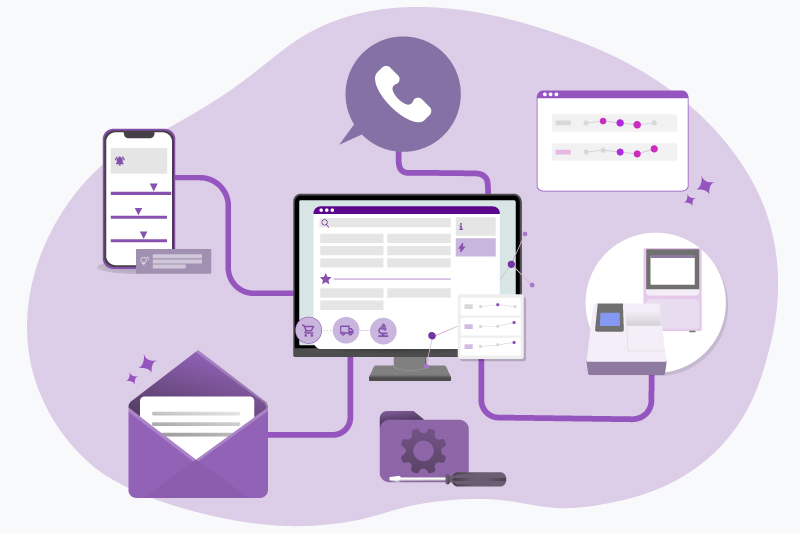
Omni-Channel Laboratory – Modern Integration Replacing Classic DFÜ
Modern omni-channel solutions centrally integrate traditional remote data transmission (DFÜ), order entry, and mobile channels – enabling consistent, efficient, and future-proof laboratory processes.
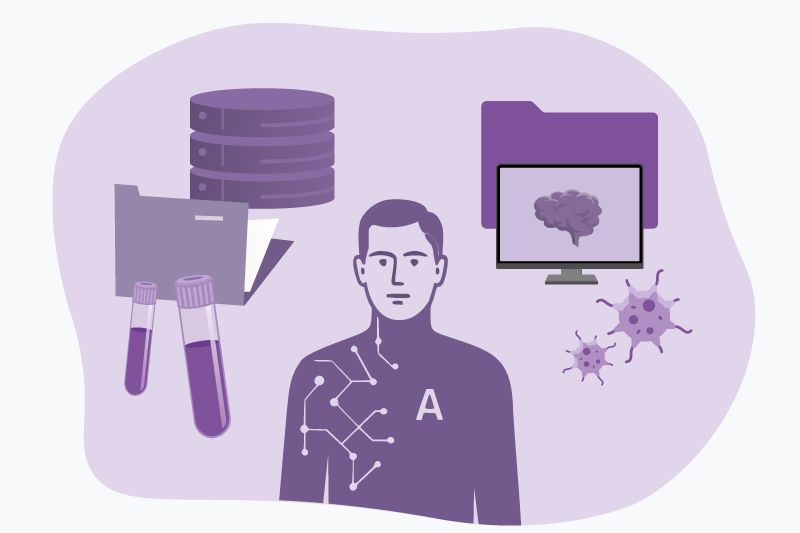
More Data for Anemia than for Cancer? Why AI Is Being Held Back Where It’s Needed Most
A sustainable healthcare system is not just about environmentally friendly hospital design or reducing plastic waste. Sustainability starts with diagnosis: The earlier and more precisely a disease is detected, the more efficiently resources can be used, unnecessary examinations can be avoided, and therapies can be optimized. This has economic, ecological, and social benefits.

